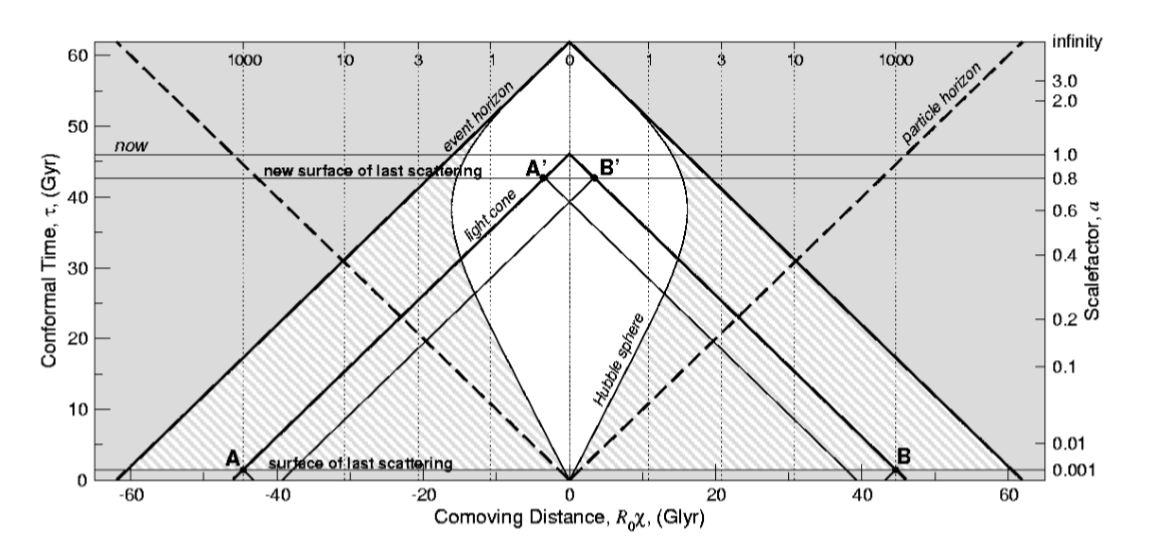I am reading an article, Inflation and CMBR by Charles H. Lineweaver.
https://www.mso.anu.edu.au/~charley/papers/canberra.pdf (Page 5/13)
He explains the inflation period as the shrinking of the event horizon in the comoving coordinate system. Which it makes sense since the inflation was a period of $\Lambda$. And In this period of time event horizon shrinks down to $0$ as time goes to infinity (in future). And in the solution part of the horizon problem, the author defines a new surface last scattering due to the inflation.

I am having trouble to understand how can shrinking event horizon can lead to a new surface of the last scattering and solve the horizon problem.
